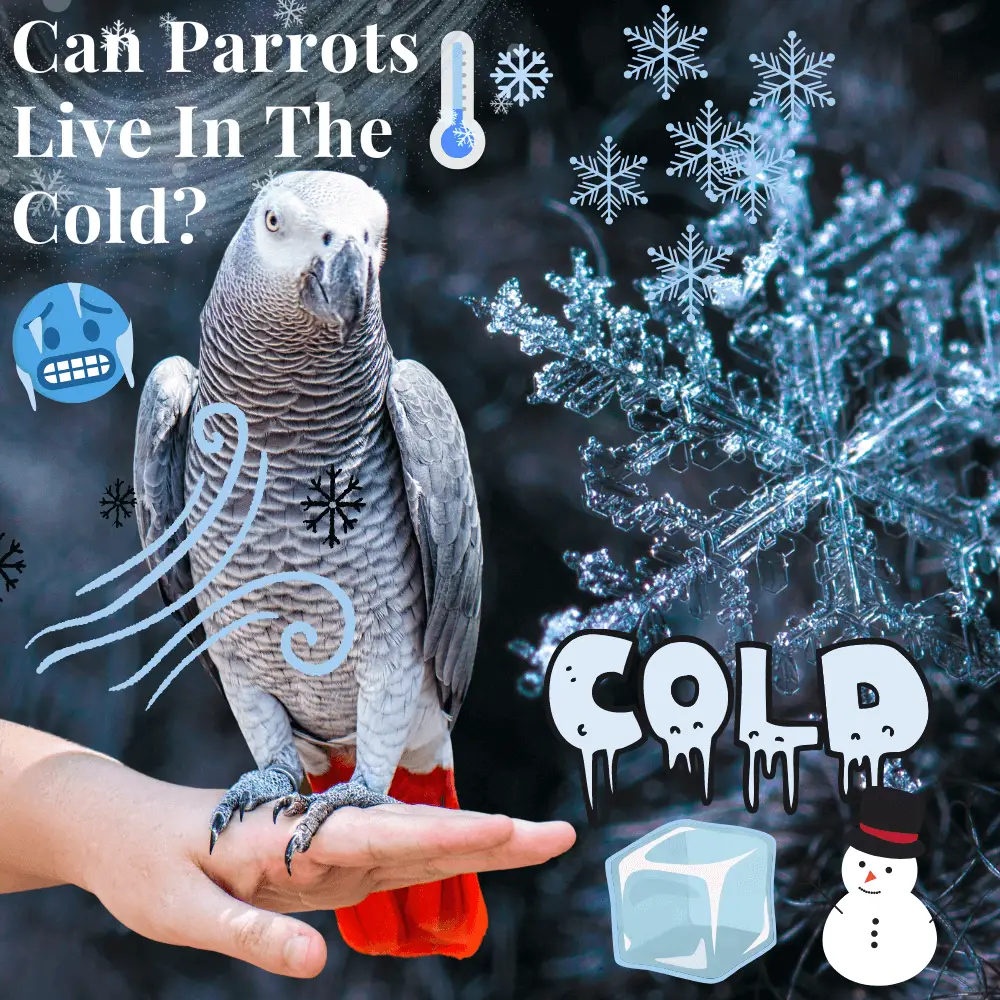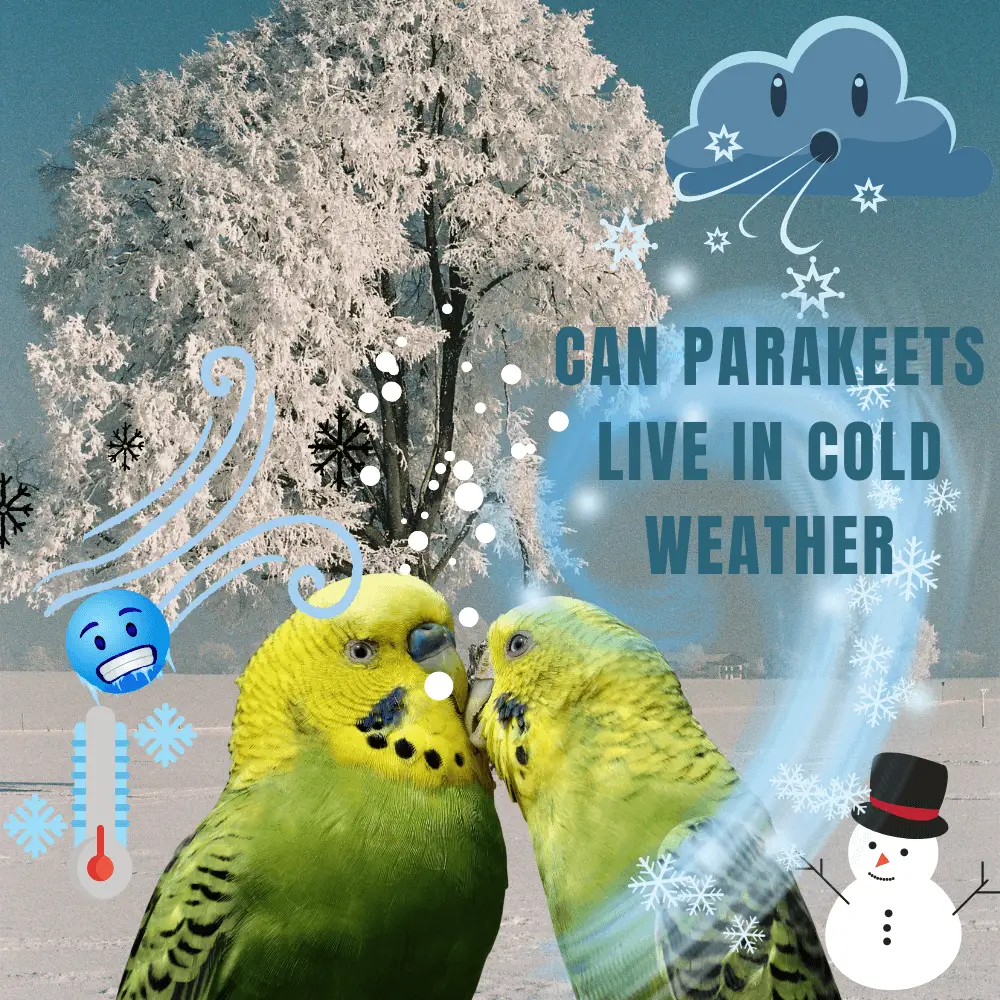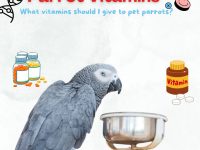
Parrots live in the cold: Pet parrots don’t tolerate snap veritably well. While some parrots in the wild have acclimated to colder temperatures in downtime, pet parrots are acclimated to the temperature in which they were bred. It’s doubtful that an inner pantomimist can bear to live outdoors in the cold wave.
In addition, most parrots kept as pets are biologically adapted to warmer temperatures, with their ancestors native to places like South America and Africa. They are therefore less likely to withstand the cold.
Homeowners who raise parrots in outdoor aviaries say the birds can withstand lower temperatures in winter if they have been acclimatized to them over time by short but frequent exposures to lower temperatures.
Ensure that your parrots are warm indoors during the cold months of the year this is very important.
How to keep your pet parrots warm in winter?
Parrots and parakeets are much more sensitive to drafts than a human. Even if we can’t feel anything, they can. It is therefore important to keep your parrot away from doors and windows.
At the same time, make sure that your heater does not dry out the air in the room where your bird is. Birds have sensitive airways and dry air can also make them sick. If your heater is drying out the air in the room, you can use a humidifier to restore natural humidity. Regular misting can also be helpful.
Covering your parrot’s cage at night is also a good way to keep it warm and protect it from potential temperature drops.
What is the ideal temperature for your parrot?
The ideal temperature for birds is between 18 and 22 degrees (Celsius), although parrots can withstand a temperature of up to 29 degrees.
Any temperature below 4 degrees Celsius can be dangerous for your bird. Larger birds can experience heat stress above 30 degrees Celsius.
Parrots enjoy stable temperatures, so it’s good to make sure the same or similar temperature is maintained in your home day and night.
Our visitors also consulted:
- How to care for a sick parrot at home
- Do parrots have nightmares while they sleep?
- Is the paint toxic to parrots?
What are the signs that your parrot may be cold?
Parrots may show an abnormal appetite and are greater than usual when they are cold. This increases their metabolism and maintains their body temperature.
Your parrot may be cold if:
- it puffs out its feathers;
- buried his beak in his chest;
- squats down to cover his feather paws and shivers.
If your parrot is cold it can also become lethargic and lose its appetite.
What are the symptoms that may suggest that your parrot has caught a cold?
Parrots do not really catch “colds”. However, they are sometimes prone to respiratory infections. Here are some symptoms that indicate that your bird may be suffering from a respiratory illness:
- Loss of appetite;
- Sneezing;
- Cough;
- Excess urine;
- Lethargy;
- Ruffled feathers;
- Discharge”nasal”.
Birds tend to get sick when exposed to drafts or fluctuating temperatures.
When parrots are sick, they may try to hide their symptoms. It is an instinctive survival strategy that they have developed in their natural environment. In the wild, showing symptoms of a disease can make them vulnerable to attack by their predators.
What is the best type of home heating for parrots?
The best type of heating for a parrot and parakeet is central heating.
The types of heating to avoid are those that produce smoke and fumes, as birds have very sensitive airways. In this case, it is better to keep your bird in another room.
Regardless of your type of heating, it is important to maintain a stable room temperature and monitor your bird.
If he curls up, buries his beak in his neck, and squats so that his feathers cover his paws, he may be cold.
Even if this article is dedicated to parrots and the dangers of cold, we must not omit the dangers inherent in the heat either… Signs that your parrot is too hot include open-beaked breathing and holding its wings away from its body. In severe cases of overexposure to too high a temperature, your parrot will be unbalanced when moving and will be prone to “seizures”. In this case, consult your veterinarian immediately.
Can parakeets live in cold weather

Share this article with your parrot friends on social networks!




















